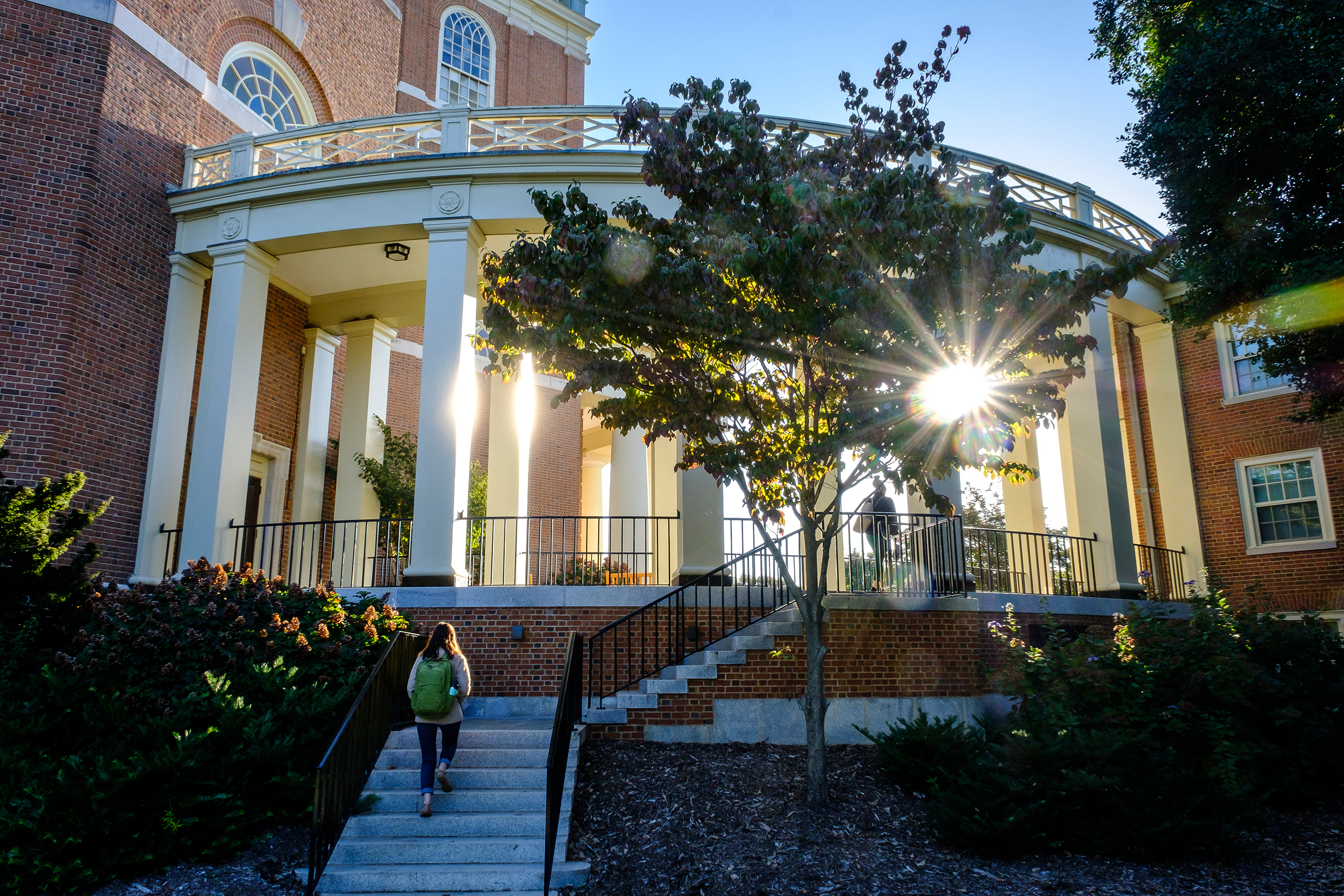New book encourages equal access to computer technology
 A new book stresses the need for all of the nation’s college students to have equal access to computer technology.
A new book stresses the need for all of the nation’s college students to have equal access to computer technology.
“It’s as if some students have keys to the library and others don’t,” writes David G. Brown in “Always in Touch: A Practical Guide to Ubiquitous Computing.” Brown was Wake Forest University’s provost when the university began providing computers to its undergraduates in the mid-1990s.
“Except at colleges that insist on universal computers, there is a gap between those students who own computers (about 50 percent in most colleges and well above 50 percent in many) and those who do not,” continues Brown, vice president and dean of Wake Forest’s International Center for Computer Enhanced Learning (ICCEL).
“Now that computer data bases have become so important and continuous communication with professors and fellow students has become so prevalent, it is no longer fair to deny some students access to computers when they are being measured against students who have computers,” Brown writes.
As part of a comprehensive technology initiative, Wake Forest began providing laptop computers-IBM ThinkPads-to its students, faculty and staff in fall 1996. Freshmen are provided the laptops when they arrive, trade them in for a new model after two years, and keep them upon graduation.
Brown favors laptops over desktops for use by college students. Laptops can be “on site” whenever needed, he explains. Students can take them to their classes and lab sessions, as well as to their residence halls and popular campus study areas. They also prove convenient when students are travelling home or out of the country for study.
“Throughout the world, college students are a privileged class of nomads,” Brown writes. “When you ask their address, they respond: ‘Do you mean my campus address, my home address, and where I’ll be this summer?'”
Overall, Brown sees colleges as the most wired communities in existence at the moment.
“A college campus is a self-contained laboratory to explore the potential of computers for enhancing communication,” he writes. “In time, as other communities increase their access to technology and as computer-literate students move on after graduation, school systems and entire communities will be able to put systems in place that ultimately will transform the quality of human interactions.”
Brown describes the new book as being, ultimately, about the power of computers to connect.
“Computers allow a single individual to establish and maintain connections with more people, from more places, with greater intensity for longer periods of time,” according to Brown’s book.
Brown’s book can be obtained through ICCEL’s Web site.
Categories: Campus Life, Community Impact, University Announcements
Media Contact
Wake Forest News
media@wfu.edu
336.758.5237



